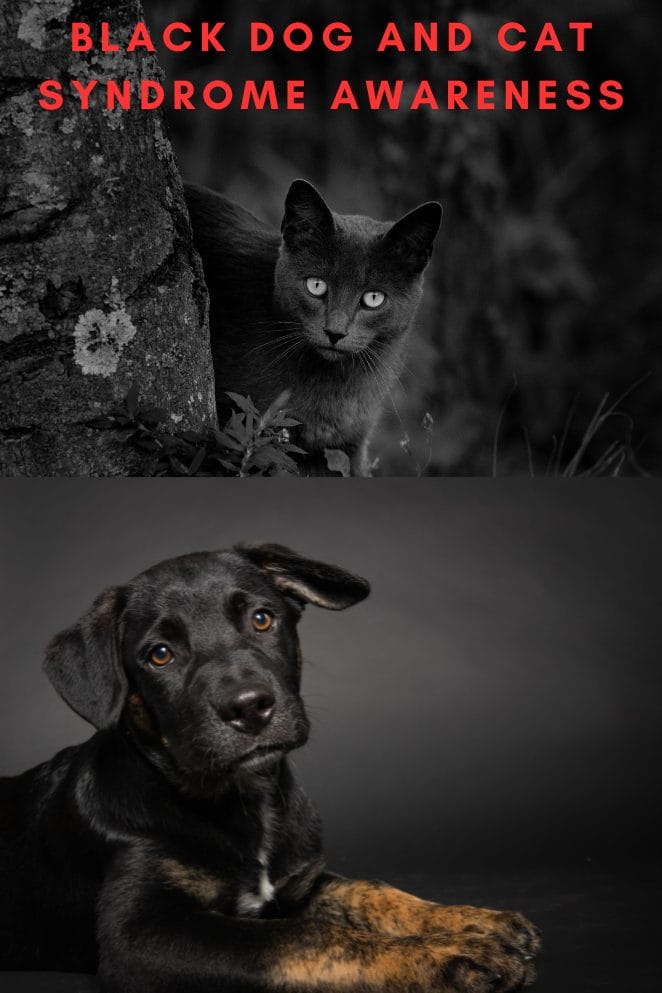
February marks the awareness of Black Dog and Cat Syndrome, a cause near and dear to most people’s hearts.
According to many animal rescuers, black cats and dogs are reportedly less likely to be adopted than other shelter animals.
Why? There is no specific cause; those who scrutinize black pets may do it unconsciously. One explanation would be that lighter animals make for better photos, which may influence users of adoption websites.
Black Cats
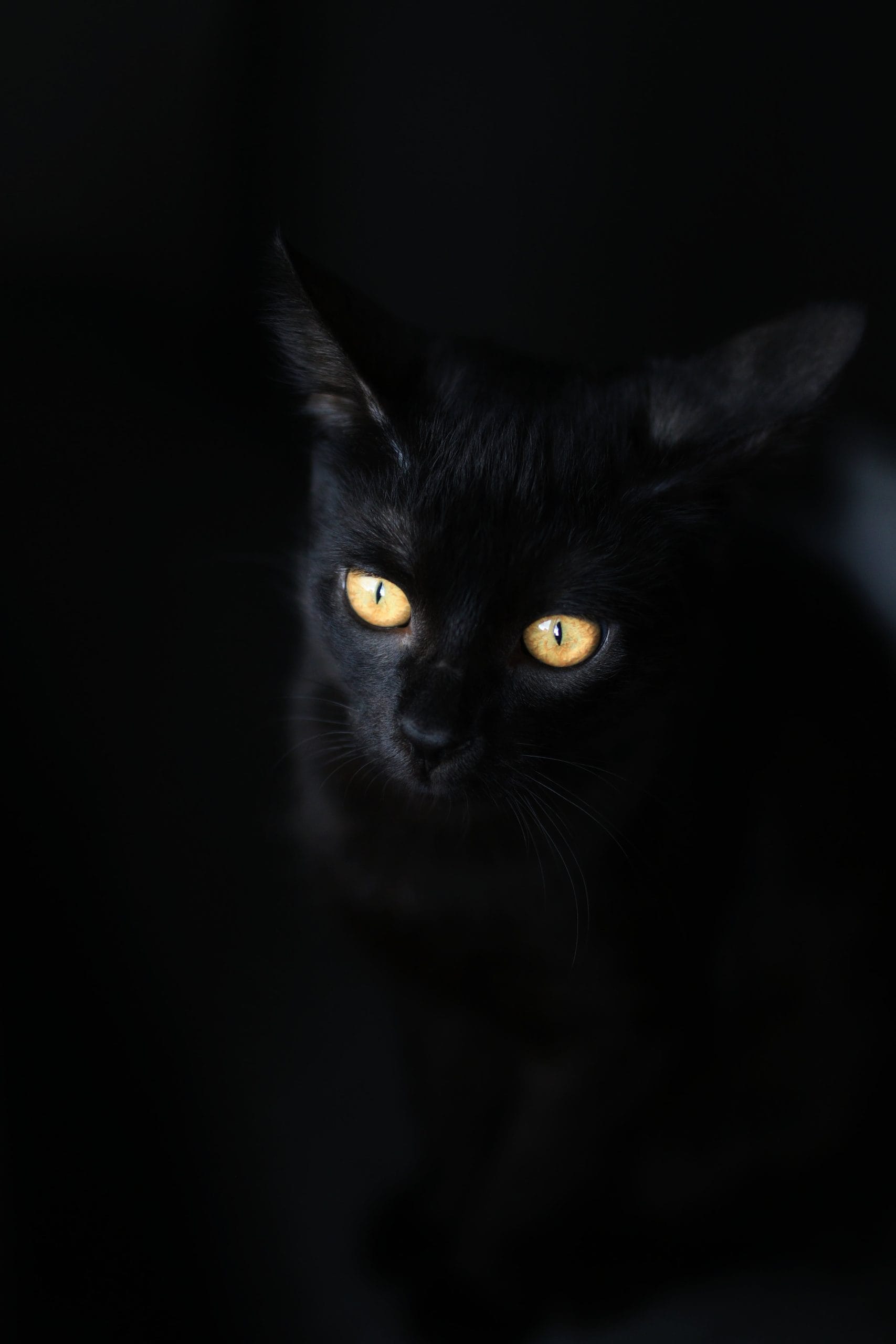
Black cats have been associated with old wives’ tails since the Middle Ages, a time when Fluffy was wrongly linked to witches and witchcraft.
Even if these rumours are untrue, they continue to circulate. Sadly, there are very serious real-world repercussions for cats from such misconceptions.
Research indicates that compared to other cats, black cats are less likely to be adopted.
Even worse: of all the coat colours, black cats had the lowest adoption rate (10.0%) and the greatest euthanasia rate (74.6%), according to a National Library of Medicine study.
In addition, they can occupy up to a third of the space in any particular shelter and are admitted to them at a higher rate than any other colour of cat.
Black Dogs
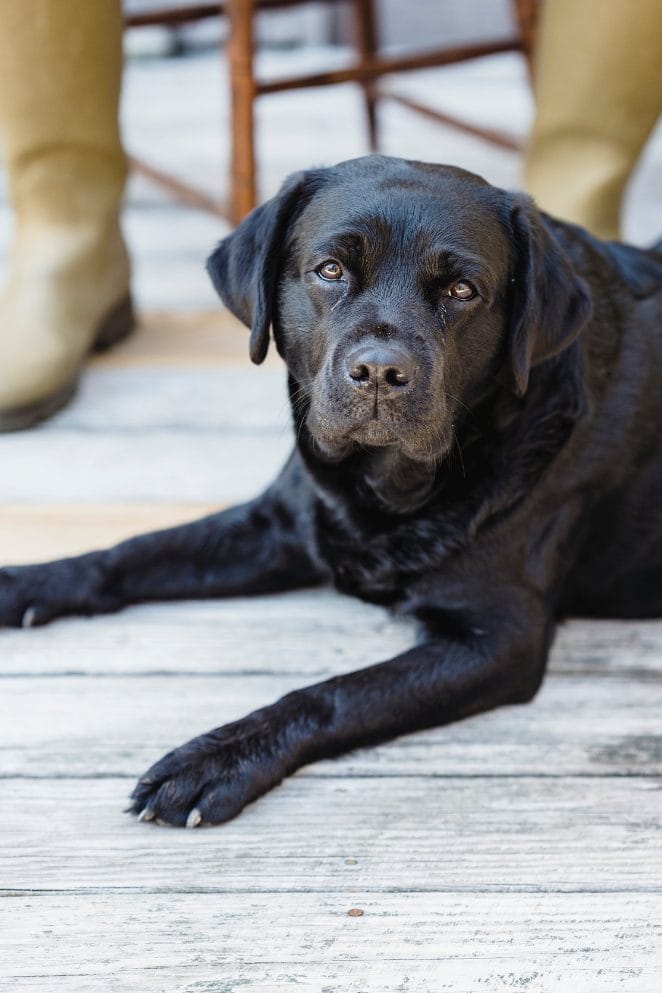
Many of the myths about black dogs are similar to those about cats.
They were frequently regarded as the underworld’s guards in antiquity.
Even now, there is still a persistent misconception that black puppies are aggressive.
They are regrettably overrepresented in shelters as well, which is one of the reasons we are glad to support this month of awareness. Still, not all of the news is negative.
Ultimately, the Black Lab is among the most well-liked dogs in the country.
Why are Black Cats and Dogs Syndrome Awareness Month Overlooked in Shelters?
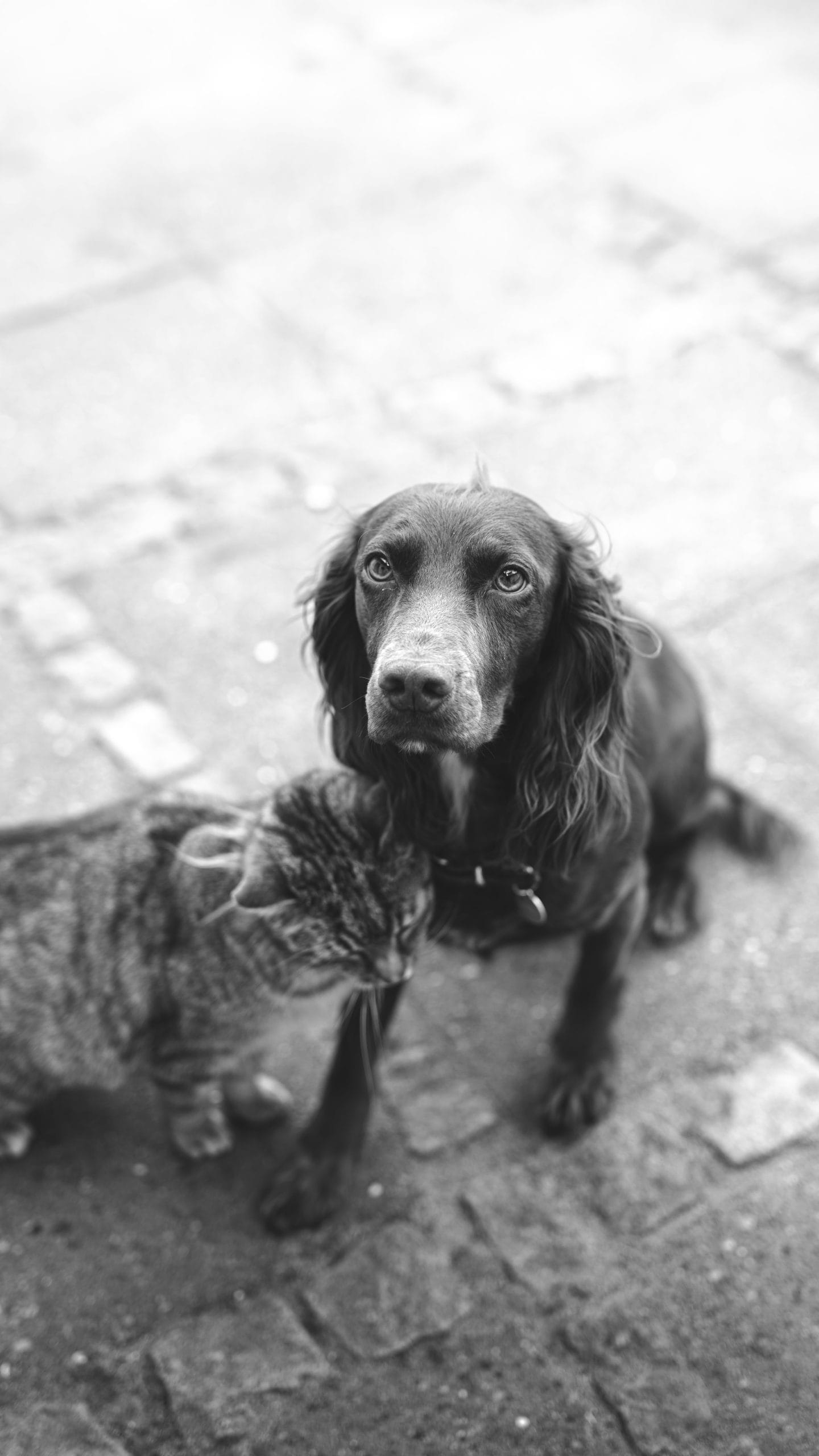
For a variety of reasons, such as superstitions, color bias, and problems with their visibility in shelter settings, black cats and dogs are frequently disregarded at shelters.
Here are a few main justifications:
- Superstitions and Myths: For millennia, many cultures have connected black cats in particular with witchcraft and bad luck.
People’s opinions and willingness to accept these superstitions can be adversely affected by them.
Even if these ideas are less common now, their influence endures. - Color Bias: Unconsciously, people may favor dogs with more vibrant or varied colors.
Regardless of their personality or other characteristics, people may find black pets to be less distinctive or fascinating. - Visibility Issues: Photographically, black dogs and cats frequently don’t compare well to lighter-coloured animals.
Their features can get lost in the backdrop in dimly lit kennels or on adoption websites, which would make them less obvious to prospective adopters.
They could unintentionally get overlooked as a result of this visibility problem. - Negative Media Portrayal: In popular culture and the media, black animals—particularly dogs—are frequently represented as more menacing or aggressive.
Their unjust portrayal may sway public opinion and make them appear less appealing as pets. - Size and Breed Stereotypes: Because black dogs tend to be larger breeds, some people may find this threatening.
A person may be discouraged from adopting black dogs due to specific breed prejudices, even if the canines are temperamental.
In an effort to address these issues and increase the adoption rates of black cats and dogs, numerous shelters and rescue groups run unique marketing and awareness efforts that emphasize the appeal and desirability of these animals.
Reasons To Adopt A Black Pet
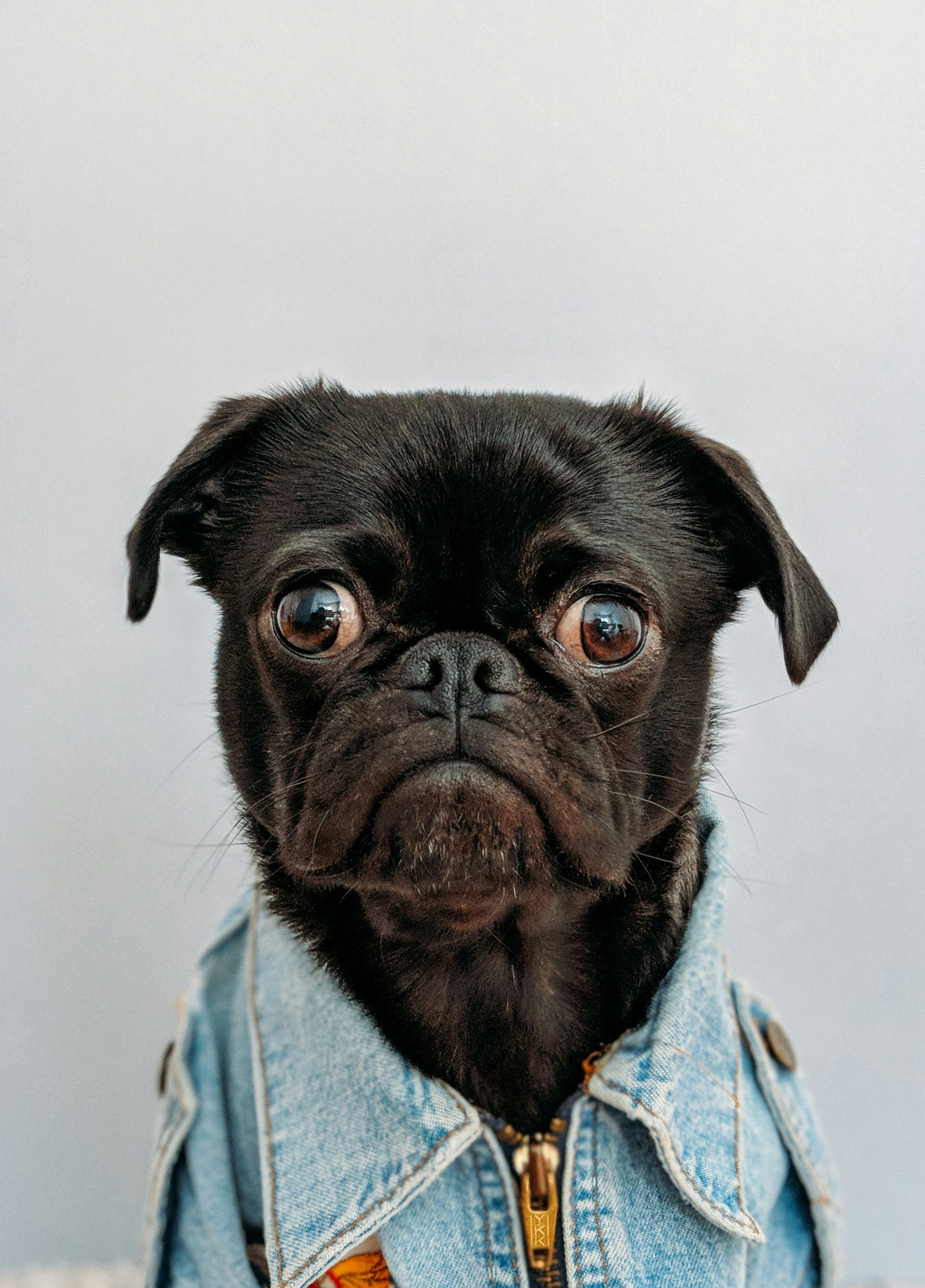
Keeping a black pet has a lot of advantages. One reason is that they always look good and go with any type of clothing or decor.
Moreover, you can capture adorable pictures that feature just your pet’s eyes. Those amusing photos of “void kitty” never cease to amuse us.
An additional benefit? It’s possible that they will bring good luck rather than harmful. In certain regions of the world, black pets are lucky!
Of course, the most significant aspect is that you’ll be transforming your furry pet’s life and creating a lifelong pal!
How Can You Help with Black Dog and Cat Syndrome Awareness?
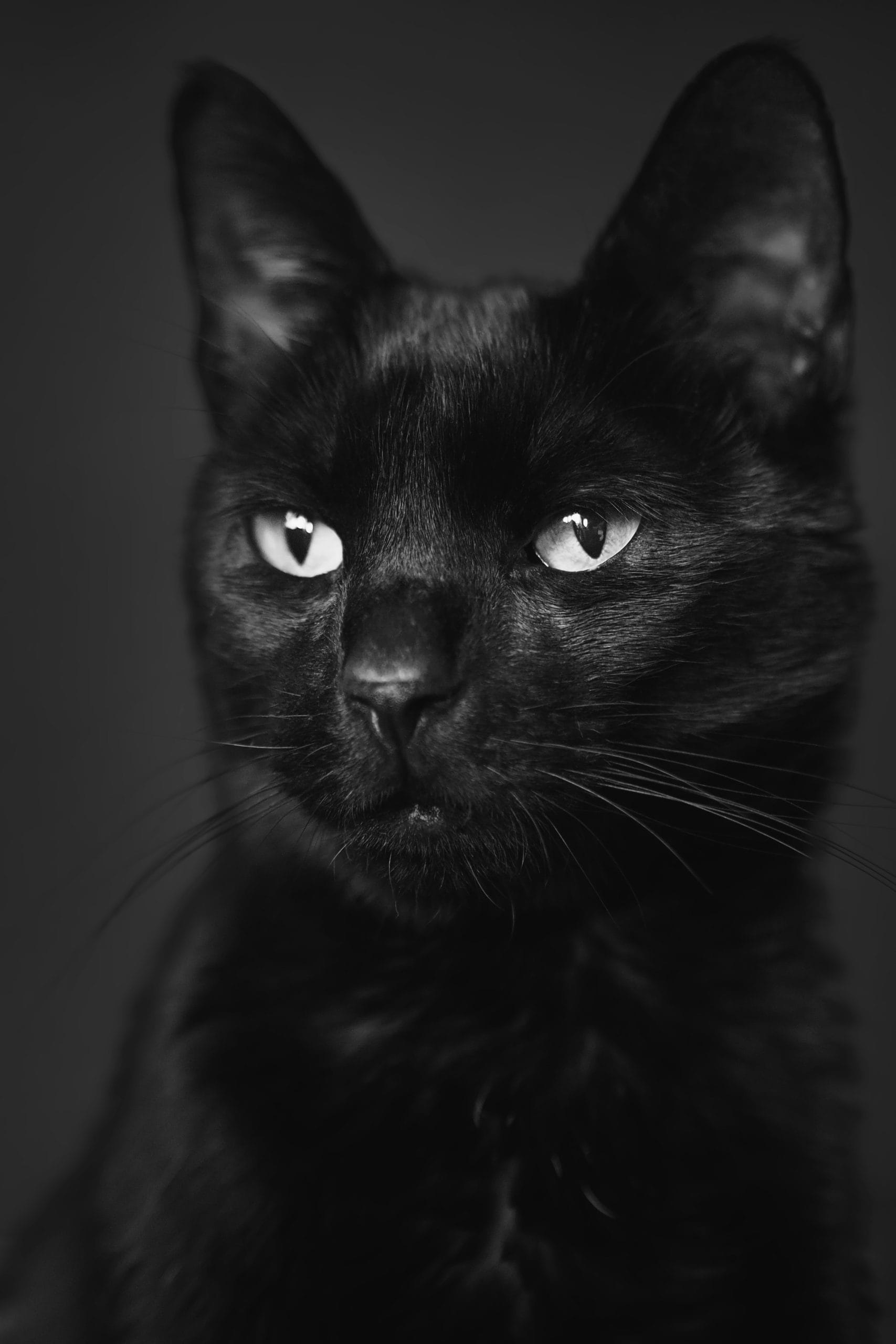
Adoption rates for black cats are significantly lower than those for cats of other hues, according to shelter reports. This puts a drain on shelters’ resources since they have to care for these animals for extended periods of time, in addition to reducing the chances that these cats will find loving homes.
- Adopt: Why not adopt a black cat if you’re thinking about expanding your household with a feline companion? Their shiny, silky fur and bright eyes are equally alluring as those of any other feline. Three black kitties call us proud pet parents!
- Spread Awareness: Remove rumours about black dogs and cats on your social media accounts. To change mindsets, spread uplifting tales and images of black cats.
- Help in Providing Shelters: Offer your time, money, or sponsorship to these shelters.
- Don’t Hesitate to Educate: Talk about Black Dog and Cat Syndrome with your friends, family, and community. The secret to transforming attitudes is educating others.
Encouraging prospective adopters to look past coat colour: It’s crucial to urge prospective adopters to look past coat colour when they visit shelters. Informing kids of this propensity and warning them that they might not detect a black pet’s expressions as fast as those of other animals can be helpful.
Celebrate Black Cat Success Stories: Tell tales of adopted black cats that have turned out well. This inspires others to think about adopting a black cat in addition to spreading positivism.
Let’s band together during Black Dog and Cat Syndrome Awareness Month to make sure every cat, regardless of fur colour, gets the devoted home it deserves.
Together, we can change the situation for these exquisite yet sometimes disregarded animals. Let’s honour the distinctiveness and beauty of black cats and provide them with the devoted homes they so well deserve!
- How to Celebrate a Dog’s First Birthday on a Budget: 2026 Guide - February 18, 2026
- Best Shampoo for Sensitive Skin Dog Grooming: 2026 Guide - February 12, 2026
- 40+ Aesthetic Names for White Dogs (2026 Unique & Rare List) - February 6, 2026


GIPHY App Key not set. Please check settings